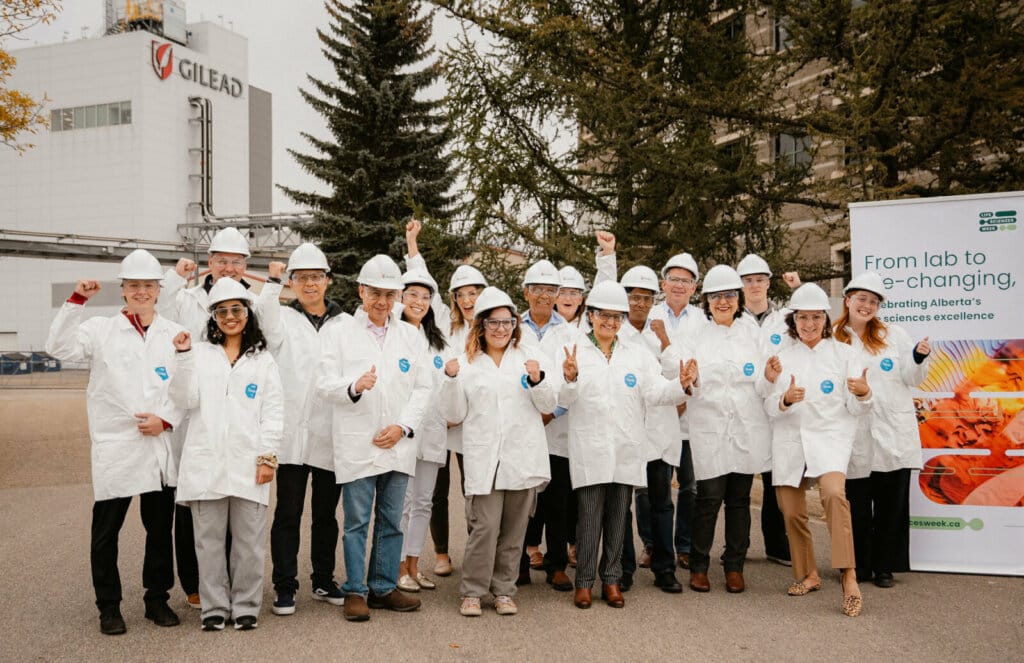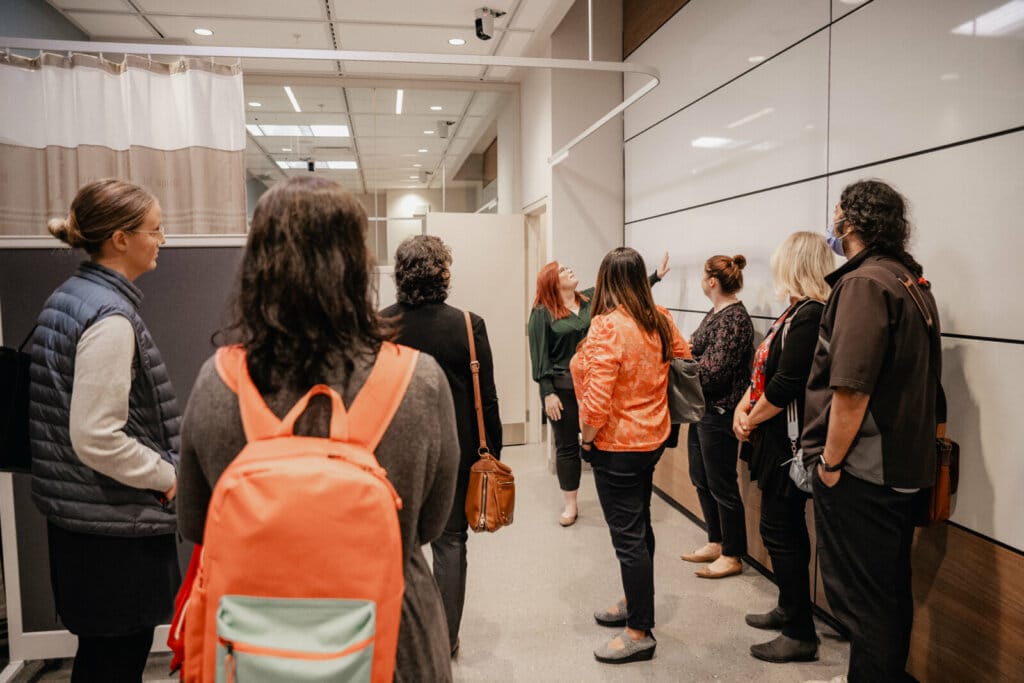
The life sciences sector has emerged as a thriving industry in Canada, demonstrating resilience and forecasting continued employment growth. However, despite this opportunity and a reputation for top-tier life sciences researchers, there remains a gap in the available pool of experienced mid-level talent.
Fostering local talent in the life sciences is a crucial way to drive innovation and ensure we meet the growing demands of the sector’s competitive labour market and rapidly evolving landscape. Nurturing talent development not only helps fill the gap, but also stimulates economic growth and diversification, empowers the local workforce, and builds a stronger life sciences ecosystem.
Let’s dive deeper into how supporting local talent in the life sciences cultivates a culture of success and helps create the next generation of leaders with the potential to transform the future of healthcare.
Investing in the future

The life sciences sector offers a wealth of opportunities and diverse career pathways across its range of disciplines. Featuring some of the world’s top-ranked post secondary institutions in life sciences subjects, Canada is ripe with world-class innovation and discovery capabilities. Harnessing today’s opportunity has the potential to drive even more success in the future, across the entire life sciences research & development cycle.
Nurturing local talent capable of driving innovation through to commercialization and global competitiveness has broader economic benefits. By providing access to education, training, and employment opportunities within the community, we can promote job creation and increase the local pool of skilled talent. This has the potential to attract industry leaders and global investors looking to capitalize on a growing sector with competent talent resources, which contributes to economic development and stability within the region.
Investing in skills development also empowers the local workforce by equipping students and professionals with the skills needed to sustain the life sciences. This is paramount to retaining talent and ensuring there are transformative opportunities to contribute to the growth and success of the sector. By empowering the workforce, individuals with essential skills will be more likely to utilize their skills within the local ecosystem, instead of seeking employment elsewhere.
In addition to talent retention, supporting local life sciences practitioners promotes diversity and inclusion within the ecosystem. Providing opportunities for individuals from all backgrounds and cultures allows us to tap into a wider pool of talent and perspectives, leading to more innovative and creative health solutions.
Fostering local talent is not just a valuable endeavor for today – it is an investment in the future. By championing individuals within our communities, we are laying the foundation for sustainable growth and innovation in the life sciences. With the right opportunities and resources, empowered minds become the driving force behind groundbreaking discoveries, advancements in medical treatments, and new technologies that can improve lives globally.
Enriching local life sciences talent

According to Canada’s latest labour market report, careers in the life sciences sector, including professional, scientific, and technical occupations, accounted for about 218,900 jobs in Alberta in 2022. This represented a significant increase of 15.1% from 2021, making life sciences one of the fastest growing sectors in the province. This remarkable growth is not without joint effort and collaboration across the ecosystem to create a thriving sector that benefits both talent and the industry as a whole.
As we reflect on the high demand for talent in the life sciences, we recognize that not all practitioners can possess all of the necessary skills to sustain the sector. Life sciences is a constantly evolving field, which comprises a diverse intersection of disciplines. Developing talent in a variety of areas is important, and continued training and skill development is important to help talent adapt to the evolving specialized needs of the sector.
At API, we work with industry experts across the country to deliver and offer access to training programs tailored to support the development of advanced scientific and technical skills in the industry. Here are some programs dedicated to enriching local talent:
Mitacs
The Mathematics of Information Technology and Complex Systems (Mitacs) is a Canadian not-for-profit organization catalyzing innovation in the life sciences ecosystem across Alberta and Canada. Mitacs offers access to several training programs for life sciences students and post-doctoral fellows aimed at enhancing their skills and potential in the industry in order to meet the sector’s demand with expertise.
API has employed several trainees under the Mitacs program to further develop their professional capacities and extend learning beyond the theoretical framework, to help translate research into practical applications.
HIH Talent Hub
Beyond supporting life sciences innovators and entrepreneurs, API’s programming at the Health Innovation Hub at UAlberta also includes talent development through a Talent Hub. This unique platform offers student-specific initiatives intended for engaging and nurturing prospective talent in the life sciences. By providing access to career opportunities, training resources, and industry events, the Talent Hub allows student members to connect with field experts and potential employers, helping them begin and advance their careers in the life sciences.
In addition to these programs, API has partnered with industry experts to offer access to specialized training courses and programs focused on fostering local talent. From strengthening on-demand skills to helping professionals stay on track with the latest advancements in biomanufacturing, API’s life sciences training hub has the right curriculum to harness the potential of students, innovators, and highly-qualified personnel (HQP) in the life sciences.
Cultivating success in the life sciences is a continuous pursuit of knowledge, innovation, and collaboration. Alberta’s consistent growth in the sector is a testament to the dedication of leaders and individuals within the ecosystem, as they strive to make a positive impact on human health and well-being and further Alberta’s position as a leader in the life sciences sector.